Graduate
NSF Fellow Seeks to Understand and Change Discrimination and Prejudice
The National Science Foundation's Graduate Research Fellowship Program (GRFP) is highly competitive and provides fellowship support for graduate students (master or doctoral) in science, technology, engineering, and mathematics. Recipients are given a three year award consisting of a fellowship stipend and an education allowance, in addition to the powerful networking opportunities and resources afforded by being selected as a fellow.
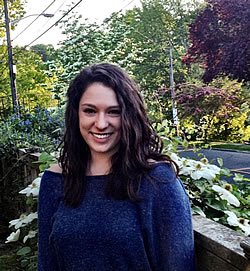 |
| Photo: Laura Brady |
The Department of Psychology has been fortunate to have several NSF fellows in the program each year. Laura Brady, a first year student in Social Psychology and Personality with Cheryl Kaiser, is one of two of our most recent recipients of this prestigious fellowship.
Let's start with the basics, where did you grow up and where did you complete your undergraduate and masters degrees?
I grew up in Rockford, Illinois, close to the Wisconsin border. I moved to Chicago (go Cubs!) to attend DePaul University, where I earned a BA in Psychology.
What attracted you to study at UW?
There is so much exciting research going on here, and so many opportunities to learn from brilliant people. As an undergrad, I worked in a lab that investigated prejudice and discrimination by looking at the influence of social structures, implicit attitudes and interpersonal interactions. I saw UW as the perfect place to continue and expand this line of learning. Plus, Seattle charmed me. When my plane landed for interview weekend, and I saw all of the trees and water, I had a moment of realization that this is where I wanted to spend the next five years. I love city living, but growing up close to Wisconsin and spending every summer camping makes me crave nature from time to time. I think Seattle has a great mix of these two things.
How do you like living in Seattle?
I longer I live here, the more I like Seattle. I’ve made a point to do at least one new thing each month, so I’ve begun to see some of the quirky only-in-Seattle things.
What is your research interest and how did you get into it (what inspires/motivates you)?
Broadly, I’m interested in prejudice and discrimination. I want to understand how these processes are created and maintained, and how they can be reduced or circumnavigated to create opportunities and fair treatment for disadvantaged groups. I’m not sure if it’s more accurate to say that justice or injustice inspires me, but many of my research interests have arisen from problems I’ve seen in the real world. I have this insatiable desire to understand and change injustice through research.
Specifically, what do you hope to accomplish with the funding?
Research, research, research! I always have research ideas stewing, and I plan to use my fellowship time to complete as many of the projects in my “Research Ideas” folder as possible.
Why did you apply for this funding opportunity? Was the application process hard? How long did you have to wait after submitting to hear you were funded?
An NSF fellowship is a great opportunity, and within the Social/Personality area, I had many exemplars to look to for guidance throughout the application process. The application process was challenging, but fortunately, my advisor and I began early. We started talking about my NSF application before I even started grad school. I finally submitted my application in November and heard about the decision in April.
How did you feel when you learned that your application was accepted? What does it mean to you to have this period of guaranteed funding?
I had a moment of disbelief when I found out that I received funding. I had spent months mentally preparing myself for the possibility that I’d have to reapply next year. When I checked my email at 6 am and saw the decision, I thought I was dreaming. That moment quickly passed, and I screamed and woke up all of my roommates. Fortunately, they forgave me. Receiving an NSF fellowship is such an honor, and I’m so grateful for all of the support I received throughout the application process. The UW community has been immensely helpful, and I’m excited to spend the next three years focusing more intensely on research.
Do you have any advice/tips/suggestions for others who may be thinking of applying for this opportunity? About graduate study in general?
Start early and work closely with your advisor. Things don’t always go as planned. For example, I spent a long time developing a research proposal about one topic before my advisor and I decided to go in a different direction. That change wouldn’t have been possible if my advisor hadn’t pushed me to think about my proposal well before the deadline. I would also suggest taking a grant prep class to impose weekly writing deadlines and asking previous fellows to share their essays and reviewer feedback.
What do you like doing in your spare time?
I really enjoy being outside and exploring Seattle. I also really enjoy pestering my fluffy, slightly overweight cat.
The last non-academic book you read and/or movie you saw and enjoyed?
Book: “The House on Mango Street,” by Sandra Cisneros
Movie: Monsieur Lazhar
What you plan to do once you complete your PhD?
I think that as long as I’m doing research and continuing to learn, I’ll be happy. Hopefully I’ll figure out in the next few years which research setting would be the best fit.
Supplemental Reading:
- Bjorn Hubert-Wallander (Cognition and Perception with Geoff Boynton) received an NSF last year.
- More information on the GRFP can be found online.
- Fellow graduate student in Social Psychology and Personality, Jennifer Wang, maintains a website devoted to tips and tricks to applying for fellowships, the NSF in particular. She successfully received an NSF and a U.S. Department of Education Jacob K. Javits fellowship, while in our graduate program.
- Assistance in applying to the NSF is provided by the UW Graduate School Fellowships and Assistantships Office.
- Grants and Funding Information Service (GFIS) through the UW Libraries.
Creating Environments To Foster Diversity Research Funded by NSF
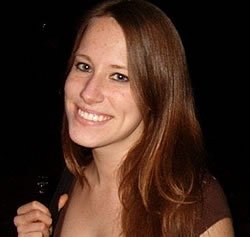 |
| Photo: Teri Kirby |
Teri Kirby, a second year student in Social Psychology and Personality, recently received a National Science Foundation's Graduate Research Fellowship. Her primary advisor is Tony Greenwald. A brief introduction of the NSF is provided in another article.
Let's start with the basics, where did you grow up and where did you complete your undergraduate degree?
I grew up in Memphis, Tennessee, and received my undergraduate degree from the University Pennsylvania in Philadelphia.
What attracted you to study at UW?
The Social and Personality area is extremely collaborative. Many students do work with multiple professors and go to multiple lab meetings. My research interests overlap with several professors in the area, so I was very excited to have the opportunity to learn from so many different researchers.
How do you like living in Seattle?
Seattle is great! I love the food, the mountains, the nice people. Also, I love living in Capitol Hill because it's very walkable.
What is your research interest and how did you get into it (what inspires/motivates you)?
I'm broadly interested in diversity, stereotyping, and prejudice. Recently, I have been interested in how to best create environments that facilitate racial and ethnic diversity. I didn't discover these interests until I went to a research conference and heard several talks on some of these topics, but I've always had a more general interest in reducing social inequality.
Specifically, what do you hope to accomplish with the funding?
I hope to do as much research as possible, particularly on the project I proposed for the fellowship. I will be examining potential ironic consequences of multicultural policies.
Why did you apply for this funding opportunity? Was the application process hard? How long did you have to wait after submitting to hear you were funded?
I wanted to free up more time to devote to independent research. The application took a good amount of time because proposing a coherent research project in two pages takes a lot of refining. Once I submitted it, I had to wait about six months to hear the results. It actually went by pretty quickly, though!
How did you feel when you learned that your application was accepted? What does it mean to you to have this period of guaranteed funding?
Excited, relieved, and sleepy because it was 3 am. It really is a relief because the fellowship will give me funding until the end of grad school if I finish within five years. I have done much more RAing than TAing so far in grad school, but this should also free up some RA funding for other grad students in the Social and Personality area.
Do you have any advice/tips/suggestions for others who may be thinking of applying for this opportunity? About graduate study in general?
Many revisions and feedback from as many people as possible is important. It's also important to sell the broader impact of the research you will be conducting as well as how you individually will contribute to your field, disseminate your research, etc.
What was the last non-academic book you read and/or movie you saw and enjoyed?
The last book I read was Enders Game. Highly recommended!
What you plan to do once you complete your Ph.D.?
I hope to continue my academic career by applying for a post-doc position in a research lab.
Supplemental Reading:
- Bjorn Hubert-Wallander (Cognition and Perception with Geoff Boynton) received an NSF last year.
- More information on the GRFP can be found online.
- Fellow graduate student in Social Psychology and Personality, Jennifer Wang, maintains a website devoted to tips and tricks to applying for fellowships, the NSF in particular. She successfully received an NSF and a U.S. Department of Education Jacob K. Javits fellowship, while in our graduate program.
- Assistance in applying to the NSF is provided by the UW Graduate School Fellowships and Assistantships Office.
- Grants and Funding Information Service (GFIS) through the UW Libraries.
Hunt Fellows Working to Improve Lives of Adults and Children
The third annual Earl (Buz) and Mary Lou Hunt Endowed Fellowships for Graduate Students in Psychology has been awarded to Andrada Neacsiu and Tamara Spiewak Toub! The Hunt Fellowship is designated to support graduate students completing dissertation research outside of their academic advisor’s own research arena and/or budgetary restrictions. Hunt Fellows receive full funding for one academic term including tuition waiver, health insurance, and a stipend, providing an opportunity for the student to fully concentrate on completing their dissertation work. It is an extremely cherished award to Psychology graduate students and the Psychology Department is proud to steward this endowment, which was created by one our own faculty emeritus.
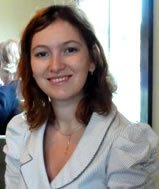 |
| Photo: Andrada Neacsiu |
Andrada Neacsiu is a student in our adult clinical program working under the primary supervision of professor Marsha Linehan. Her research assesses the effectiveness of Dialectical Behavior Therapy (DBT) to treat emotion dysregulation across disorders extending the use of this therapy to conditions other than Borderline Personality Disorder (BPD) for which it was originally developed. Thus far, Andrada’s findings have supported that the use of DBT (alone or with another method), significantly decreases emotion dysregulation and increases coping skills. While being supported on the Hunt Fellowship, Andrada will finalize her analyses, completing the final stages of dissertation writing. She is expected to defend her dissertation and graduate with her Ph.D. during the course of this fellowship. Andrada will continue mentoring the research activity of several undergraduate and post baccalaureate students and complete the last phase of her required clinical internship at the same time. She says, “I am really excited to finish this project and I am hoping this fellowship will fund me through its final stages.”
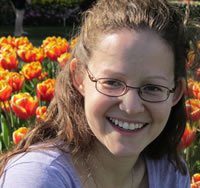 |
| Photo: Tamara Spiewak Toub |
Tamara Spiewak Toub is a student in our developmental program working under the primary supervision of professor Betty Repacholi. Tamara’s research looks at the effect of pretend play on the development of executive function among pre-schoolers. Tamara explains that executive function refers to higher order cognitive abilities involved in self-regulation of thoughts and behaviors and it is positively correlated with academic competencies. Tamara’s research has shown that three and a half to four year old boys who are told to imagine they have taken a rocket ship to a fantasy planet do better on a test of executive function than boys tested under more standard conditions. She currently tests whether a more gender-neutral fantasy with improve performance of both girls and boys. She will complete the analyses of her final study and write her dissertation during the term of her Hunt Fellowship. After working as the Psychology Department’s Lead TA for two years, Tamara is looking forward to this opportunity to concentrate full-time on her dissertation.
Supplemental Reading:
- Earl Hunt Graduate Fellowship Fund provides supports to graduate students conducting independent research (year 1, year 2).
- Support UW Psychology Graduate Students by donating.
ALCOR Fellowships Support Diverse Research Interests
Each spring, the Psychology Department awards the Alcor Summer Fellowship, funded through the Alcor Endowment in Psychology. Alcor fellows demonstrate outstanding ability, achievement, and financial need. With no service expectation, our fellows are especially appreciative of Alcor support to defray living costs and provide personal support, which enables them to make speedier progress on a major program milestone.
The Alcor fellowship fund was created by Harry E. Peterson and Claire Garlick Peterson. Harry and Claire were avid amateur astronomers and sailed on several boats they named “Alcor” through the years. “Alcor” is the name of a double star located at the end of the Big Dipper’s handle and represented the close relationship the two had. Their fellowship continues to give a lasting gift reflective of their full, productive and well-traveled lives.
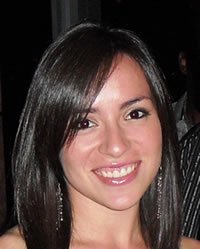 |
| Photo: Marissa Corona |
Alcor recipient Marissa Corona’s dissertation, “Depression and obesity among ethnic minority youth,” is an important body of work which will help serve the minority youth community. From personal experience, she identified early on that there were gaps in the research on mental health issues for minority youth and omissions in the services provided to the minority youth community. Her dissertation research has sought to address these concerns. During her Alcor summer, Marissa plans to analyze her dissertation data and complete a draft of her dissertation that can be refined during Fall quarter. She plans to defend her dissertation in January 2013. She has previously presented a portion of her Ph.D. research at the 2011 APA Annual Convention. Marissa is a fifth year child clinical student, working with Psychology Professor and University Provost Ana Mari Cauce.
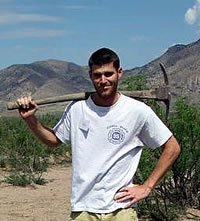 |
| Photo: Tom Soare |
Tom Soare is a fourth year animal behavior student mentored by professors Sean O’Donnell (now at Drexell University), and Mike Beecher. As Tom noted in his Alcor application, his research examines “army ant preferences for nest sites with different attributes. “ He will be collecting and analyzing data at the La Selva Biological Station in Costa Rica this summer. Tom has been actively involved in collecting data for this project for the past three years. He will use Alcor to cover fees for his four-week station stay, part of his airfare, and most importantly, allow him to be in the field to continue his dissertation work.
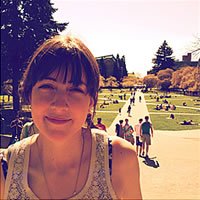 |
| Photo: Adrienne Sussman |
Adrienne Sussman will spend her Alcor summer focusing on collaborative research with the Oregon National Primate Research Center in Beaverton, Oregon. The research she conducts during this time will provide the basis for the final two chapters of her dissertation. She also plans to develop and submit a journal publication on the work, and establish a data base for future comparative study. Being supported by Alcor will allow Adrienne to travel to Oregon and make huge strides in her work. Adrienne is a fourth year student in our animal behavior area working with Psychology Research Associate Professor Jim Ha.
Supplemental Reading:
- Introduction to the ALCOR
- Past ALCOR Fellows mentioned in Graduate Accomplishments (2005, 2006-2007, 2008, 2009, 2011)
- Standalone article in 2010
- Support UW Psychology Graduate Students by donating
Diversity Science Specialization Stretches Thinking and Supports Diversity
Through the work of the Diversity Steering Committee, the Psychology Department has offered a Diversity Science specialization. Initially offered in 2008, the specialization is designed to enhance graduate training for psychology students. Completing the specialization helps students understand how the experiences of diverse populations can be utilized to advance the student’s major area of study and cultivates an understanding of the relationship between diversity and psychological issues.
This past year, Kelly Koo from the adult clinical area and Ben Drury from the social psychology and personality area each earned specializations to enhance their Ph.D. training. To understand the impact the specialization has had on students’ training, we asked these recent recipients about their experiences after obtaining the specialization.
Recent clinical graduate Dr. Kelly Koo finds the specialization contributed to her graduate training in two key ways. She found that the specialization was a good way to formalize all of the work she has done addressing issues related to diversity. She comments, “The diversity specialization institutionally formalized all the hard work I did on diversity issues and research throughout my graduate training.” Additionally, she finds that the specialization is a good way for the department to communicate its commitment to diversity. She comments, “It is important to me that my institution not only supports this work but that it also proudly communicates their support for diversity work to others.” For Dr. Koo, the specialization adds to graduate training by providing students the tools they need to help approach issues related to diversity while also communicating that the department values diversity.
Ben Drury offered a similar assessment of the value of the diversity specialization. For Drury, the specialization helped increase his ability to think critically about the problems, as well as the solutions, to diversity-related issues. Drury comments, “The Diversity Specialization has helped me become more aware of the breadth of issues related to diversity and how we can be supportive of diversity-related policies, while also being critical of the way they are often carried out.” The Diversity Specialization thus provides graduate students an additional opportunity to hone their critical thinking skills with a focus on diversity.
Supplemental Reading:
- Articles on the students who completed the Specialization in 2010 and 2011.
- Diversity Science Specialization program requirements (only available to currently enrolled Psychology Graduate Students)
Graduate Accomplishments
Autumn quarter 2011
The following MANY students completed their general exams and advanced to candidacy for the Ph.D. in Autumn 2011: Colin Beam (Cognition and Perception with John Miyamoto), Rick Cruz (Child Clinical with Kevin King), Amanda Gilmore (Adult Clinical with Bill George), Joel Grow (Adult Clinical with Mary Larimer), Sungjun Joo (Cognition and Perception with Scott Murray), Earnest Kim (Behavioral Neuroscience with Jeansok Kim), Jeff Lin (Cognition and Perception with Geoff Boynton), Kimberly Nelson (Adult Clinical with Jane Simoni), Erik Runeson (Cognition and Perception with Scott Murray), J. Oliver Siy (Social Psychology and Personality with Sapna Cheryan), Kate Sullivan (Child Clinical with Wendy Stone), Josh Tabak (Social Psychology and Personality with Sapna Cheryan), and Erin Ward-Ciesielski (Adult Clinical with Marsha Linehan).
Congratulations to our Autumn quarter 2011 Master’s recipients: Leona Dondi (Social Psychology and Personality with Cheryl Kaiser), Jeremy Luk (Child Clinical with Kevin King), Lyndsey Moran (Child Clinical with Liliana Lengu), Karen Pang (Child Clinical with Elizabeth McCauley and Lynn Fainsilber Katz), and Christopher Schroth (Social Psychology and Personality with Janxin Leu).
During Autumn quarter 2011, we had two students Kelly Koo (Adult Clinical with Bill George) and Josh Tabak (Social Psychology and Personality with Sapna Cheryan) complete the Diversity Science Specialization. Read about how the Specialization emphasized their training.
Emily Blumenthal (Developmental with Jessica Sommerville), successfully defended her dissertation, titled "An electrophysiological study of the perception and representation of Michottean launching events." Em is currently a post-doctoral fellow at UC San Diego with Karen Dobkins.
Winter quarter 2012
Daniel Byrd (UW Ph.D. 2010) was interviewed for a CNN’s “In America” blog. "Post-Racial? Americans and Race in the Age of Obama," released Monday by the nonprofit Greenlining Institute, explores the link between white survey respondents' perception of blacks and whether they believed discrimination to be a major problem in today's society. Daniel is the research director of Greenlining Institute and the study’s primary author.
Jeremy Luk (Child Clinical with Kevin King), was selected as a junior mentor for the 2012 Society for Research on Adolescence Young Scholars Program. This honor reflects his “strong academic competence, impressive research and publication records, as well as (his) passion to help others succeed.” He will mentor young scholars and also interact with senior researchers in the field of adolescent development.
Erin Ward-Ciesielski (Adult Clinical with Marsha Linehan), won The Society for a Science of Clinical Psychology 2011 Dissertation Award. Her dissertation is “Brief Skills Training for Suicidal Individuals”. The Society told Erin that “this was a particularly competitive year, as we received 40 applications, more than twice the number we received in past years.” She also won the Morton Silverman Student Award, given by the American Association of Suicidology. The Silverman Award is for a paper written by a student on a topic directly related to the field of Suicidology. Erin’s paper is entitled "Development of a brief Dialectical Behavior Therapy skills-based intervention for non-treatment-seeking suicidal individuals – An open pilot feasibility study."
Andy Paves (Adult Clinical with Mary Larimer), was interviewed for a Seattle Times Pacific Northwest cover story on cage fighting.
Two Behavioral Neuroscience students completed their general exams and advanced to candidacy during winter quarter 2012: Robyn Laing (Jaime Olavarria) and Yong Sang Jo (Sheri Mizumori).
Also during winter quarter 2012, Ben Drury (Social Psychology and Personality with Sapna Cheryan/Cheryl Kaiser), completed the Diversity Science Specialization.
Josh Tabak (Social Psychology and Personality with Sapna Cheryan), became the sixth graduate student to complete a Quantitative Minor.
Jeff Lin (Cognition and Perception with Geoff Boynton), successfully defended his dissertation “Effects of attention without perceptual awareness on motor responses, memory and behavior.” He is currently working at Riot Games in Santa Monica, California, as a Research Scientist and Game Designer to improve the gameplay experience of League of Legends.
Mara Sedlins (Social Psychology and Personality with Yuichi Soda), defended her dissertation “The Automatic Social Categorization Test: Validating a New Measure.” She presented several studies from her dissertation at the Association for Psychological Science on May 27, 2012 in Chicago as part of a symposium titled "Black, White, or Shades of Gray: Categorical Versus Continuous Social Perception," chaired by Lori Wu Malahy (Social Psychology and Personality with Yuichi Shoda). Mara has also been working at Microsoft Research on a project examining the ways people evaluate and make sense of infographics.
Spring quarter 2012
Teri Kirby [link to article] (Social Psychology and Personality with Tony Greenwald), Laura Brady [link to article] (Social Psychology and Personality with Cheryl Kaiser), and Sarah Grover (recent undergraduate with Sapna Cheryan), each received NSF Graduate Research Fellowships.
Joy Kawamura’s (Child Clinical with Lynn Fainsilber Katz), abstract was recognized as a Meritorious Student Abstract by the Society of Behavioral Medicine. She submitted an abstract titled "Parenting in the context of childhood cancer: The relation between parental psychological control and internalizing problems for survivors of leukemia" to the Society’s conference.
Peter Kahn and his Developmental students Solace Shen and Heather Gary (along with other collaborators) won the Best Paper award at the International Conference of Human-Robot Interaction 2012. The paper is titled: “Do People Hold a Humanoid Robot Morally Accountable for the Harm it Causes.” Solace presented the paper at the conference.
UW Today also featured professor Kahn and his research team in the exploration of how children interact socially with a humanoid robot. "In developing robot nannies, we should be concerned with how we might be dumbing down relationships and stunting the emotional and intellectual growth of children." Co-authors at UW are Nathan Freier, Rachel Severson (Ph.D. 2010), Jolina Ruckert and Solace Shen.
Joshua Tabak's research as a psychology graduate student, was in many local and national media outlets when he publshed a high profile paper on automatical judements.After seeing faces for less than a blink of an eye, college students have accuracy greater than mere chance in judging others’ sexual orientation. Their "gaydar" persisted even when they saw the photos upside-down, and gay versus straight judgments were more accurate for women’s faces than for men’s. http://www.washington.edu/news/articles/gaydar-automatic-and-more-accurate-for-w omens-faces-psychologists-find.
The Psychology Graduate Program participated in the 20th Annual Pacific Northwest Regional McNair/EIP/GO-MAP Research Conference's Graduate Program Recruitment Fair on May 18, 2012. Graduate students Marissa Corona, Meg Grounds, Bjorn Hubert-Wallander, J. Oliver Siy, and Kayla Upshaw volunteered at our table to speak with prospective applicants. We made several connections during the fair and appreciate our students who volunteered their time. Thanks!
Sungjun Joo, Lori Malahy, and Tom Soare each received GPSS Travel Grant support. Congratulations!
[Students who complete their Master’s degrees, general exams or defend their dissertation in Spring/Summer 2012 will be included in the Winter 2012 e-newsletter]

